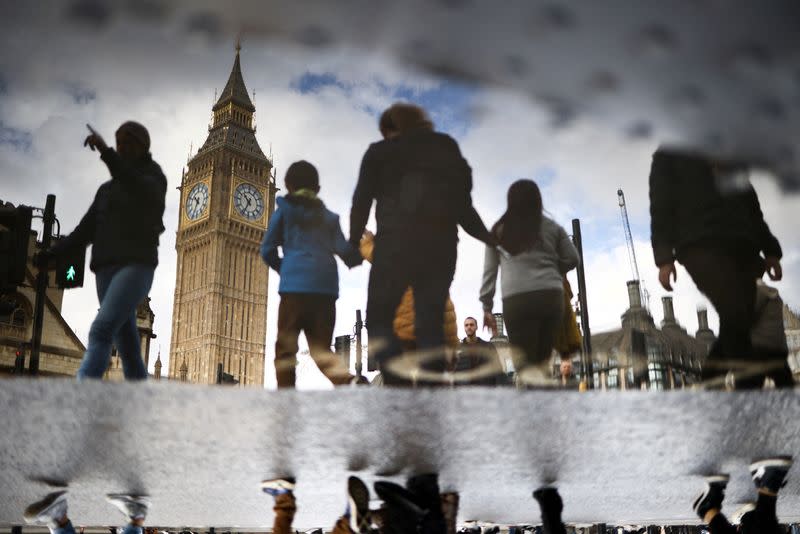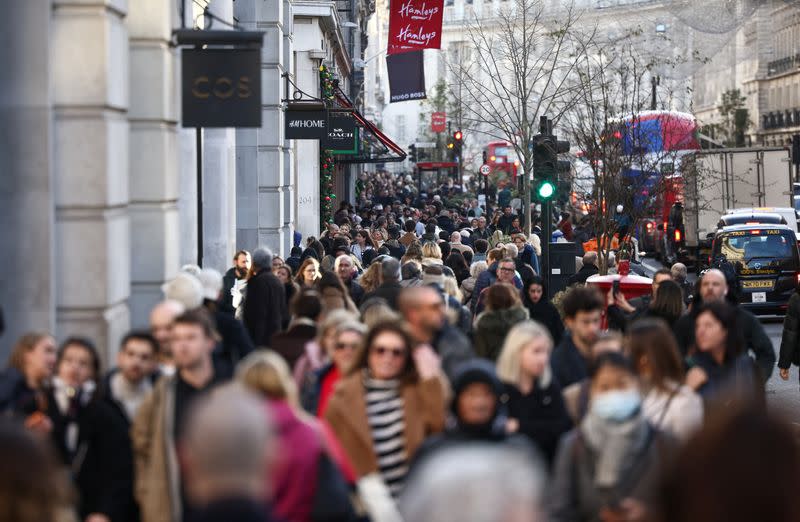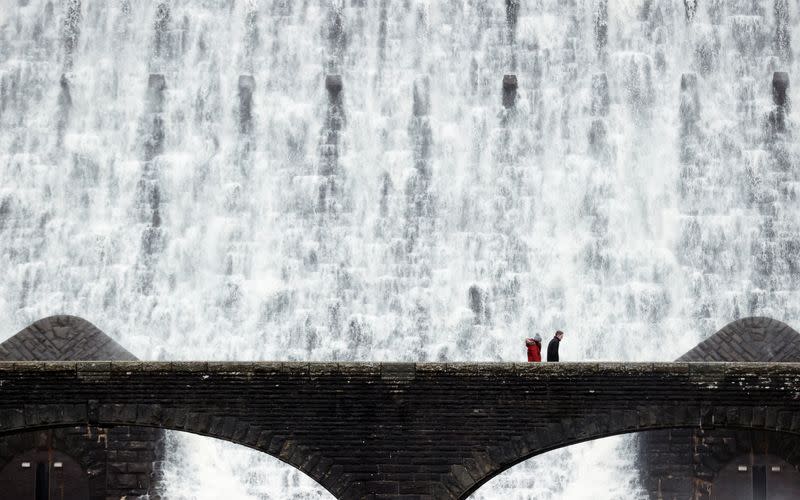England and Wales more ethnically mixed and less religious, census shows
(Repeats to fix format, no change to text)
By David Milliken
LONDON (Reuters) -Fewer than half of people in England and Wales now count themselves as Christian, after a big increase in people with no religion, while the share of the population who identify as white has dropped, new census data showed on Tuesday.
England and Wales's white population slipped to 81.7% of the total in 2021's census from 86% in 2011, while the proportion who described their ethnicity as "Asian, Asian British or Asian Welsh" rose to 9.3% from 7.5%.
England and Wales's population of people who identified as "Black, Black British, Black Welsh, Caribbean or African" rose to 4% from 3.3%.
Britain's Office for National Statistics said the shifts reflected "differing patterns of ageing, fertility, mortality, and migration", and possibly changes in how people classed themselves.
Census data released earlier this month showed the foreign-born population in England and Wales had risen by 2.5 million in the past 10 years, reflecting significant immigration from eastern Europe, south Asia and Africa.
Data for Britain as a whole are unavailable as Scotland's government delayed the census there by a year because of the COVID-19 pandemic.
Asked about the figures, a spokesman for Prime Minster Rishi Sunak said: "The UK is a diverse country and that's to be welcomed, and that includes diversity of religion as well."
FEWER CHRISTIANS
Tuesday's census data showed an especially sharp drop in the share of people in England and Wales who described themselves as Christian, which fell to 46.2% in 2021 from 59.3% in 2011.
This drop was mirrored by a big increase in people saying they had no religion, which rose to 37.2% from 25.2%.
Islam was the second most common religion, followed by 6.5% of the population and up from 4.9% in 2011, while Hinduism was the third most common at 1.7%. Sikhs made up 0.9% and Jews 0.5% of the population.
The Church of England still plays a major role in state ceremonial events, and its bishops have guaranteed seats in Britain's upper house of parliament.
The census also allowed people to give more detail on their ethnicity.
Among people who said they were white, the proportion who also said they were "English, Welsh, Scottish, Northern Irish or British" dropped to 74.4% from 80.5% in 2011, while "White: Other" rose to 6.2% from 4.4%.
The absolute number of white people in England and Wales rose to 48.7 million from 48.2 million, although the number who said they were white and of a British or other United Kingdom ethnicity fell to 44.4 million from 45.1 million.
For people of Asian ethnicity, the numbers who stated an Indian, Pakistani or Bangladeshi heritage all rose, while the proportion with a Chinese background was stable.
Fewer Black people described themselves as being of Caribbean heritage, while the main African backgrounds given were Nigerian, Somali and Ghanaian.
London remained the most ethnically mixed part of England and Wales. Only 36.8% of Londoners described themselves as "White: English, Welsh, Scottish, Northern Irish or British", down from 44.9% in 2011.
(Reporting by David Milliken; Editing by Arun Koyyur)

 Yahoo News
Yahoo News 




